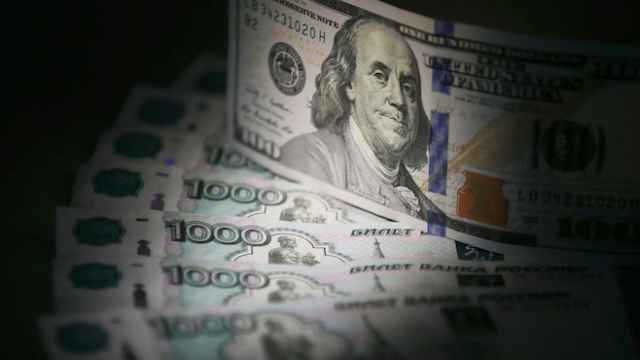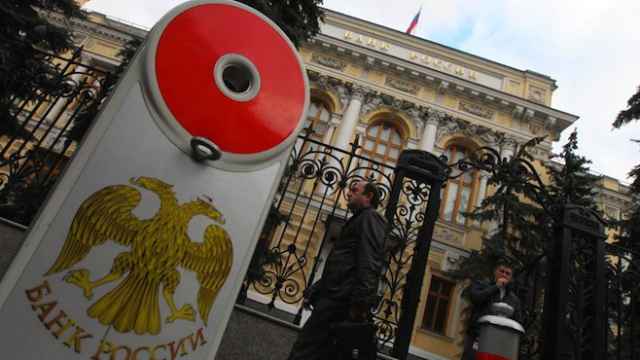The possible implementation of capital controls in Russia came a step closer Tuesday as the authorities appeared to be running out of options to stem the country's dramatic currency collapse.
The ruble defied an emergency interest rate rise of 6.5 percentage points announced overnight, falling 20 percent to above 80 against the U.S. dollar Tuesday afternoon and prompting market participants to suggest that the Kremlin might be ready to push for a more unorthodox monetary policy.
"The situation is critical," Central Bank deputy chairman Sergei Shvetsov told reporters Tuesday in comments carried by Russian news agency Interfax.
"Even in your nightmares a year ago, you would not have imagined what is happening now."
A group of Russian lawmakers proposed legislation that would force Russian exporters to sell foreign currency last week, a mild form of currency control, but the ruble's increasingly unhinged behavior has sparked discussion of more extreme measures.
"The regulator is being torn apart by its former liberal policies and the new reality — market players expect capital controls," Alexei Golubovich, founder of investment management firm Arbat Capital, said in a commentary for Russian business website RBC published Tuesday.
Moves in this direction could include restrictions to stop money earned in Russia from being moved abroad — like a halt on dividend payments — or limits on the amount of foreign currency that could be withdrawn from banks.
The imposition of any limitations on the freedom of movement of capital in Russia would a significant U-turn for Russian officials who have dismissed such such a step as inconceivable.
Russian President Vladimir Putin said on Nov. 10 — when a dollar was worth 47 rubles — that Russia had not plans to introduce capital controls. Central Bank chairwoman Elvira Nabiullina said a month earlier that speculation over such measures was "absolutely baseless."
Russia abolished its last remaining capital controls in the mid-2000s as part of a bid to control ruble appreciation that was gathering pace amid rising oil prices.
A group of parliament members from the A Just Russia party proposed legislation Friday that would force exporters to sell 50 percent of the foreign currency they earn, but played down the severity of the bill.
"Compelling exporters to sell a part of their revenues would not be a big deal," bill sponsor and A Just Russia deputy Alexander Burkov told The Moscow Times on Monday.
Capital controls are also backed by some Kremlin officials. Sergei Glazyev, a presidential adviser and former candidate to head the Central Bank, suggested as long ago as September that Russia should impose a tax on money being moved abroad.
Putin blamed the ruble's falls earlier this month "speculators" and has hinted at a push by Western governments to hurt Russia through economic sanctions and the manipulation of the oil price.
"What kind of response is Putin preparing?" asked Bernie Sucher, a member of the board at Moscow brokerage Aton and a long-term investor in Russia.
"If he believes he is under attack, then Mr. Putin's got to be expected to come out of the corner fighting."
Contact the author at h.amos@imedia.ru
A Message from The Moscow Times:
Dear readers,
We are facing unprecedented challenges. Russia's Prosecutor General's Office has designated The Moscow Times as an "undesirable" organization, criminalizing our work and putting our staff at risk of prosecution. This follows our earlier unjust labeling as a "foreign agent."
These actions are direct attempts to silence independent journalism in Russia. The authorities claim our work "discredits the decisions of the Russian leadership." We see things differently: we strive to provide accurate, unbiased reporting on Russia.
We, the journalists of The Moscow Times, refuse to be silenced. But to continue our work, we need your help.
Your support, no matter how small, makes a world of difference. If you can, please support us monthly starting from just $2. It's quick to set up, and every contribution makes a significant impact.
By supporting The Moscow Times, you're defending open, independent journalism in the face of repression. Thank you for standing with us.
Remind me later.







